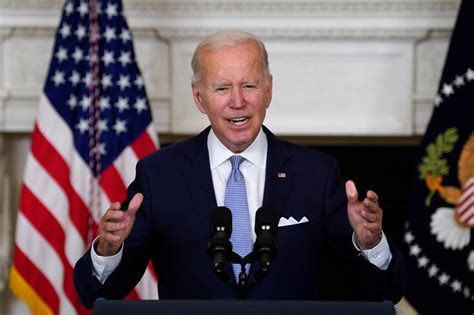
Over the weekend, a congressional tax committee analyzed a portion of the tax Inflation Reduction Act Senator Joe Manchin struck with Senator Chuck Schumer and President Biden. Republicans inaccurately claimed the report shows the plan would increase taxes on the middle class. The plan in fact raises taxes only on corporations with an income over $1 billion. It does not raise taxes on individual taxpayers at all.
This false claim immediately began to spread through conservative media. The study, by the Joint Committee on Taxation, “finds that average tax rates will increase for nearly every income category in 2023 under the bill,” asserts The Wall Street Journal editorial page. “This gives the lie to Democratic claims that no one earning under $400,000 will pay more taxes under the bill, a promise Mr. Biden also made in his campaign. The reality is that the Schumer-Manchin bill is a tax increase on nearly every American.”
Even some neutral media have given this charge respectful treatment. “Biden vowed never to raise taxes on any Americans making less than $400,000 annually,” reports the Capitol Hill newsletter Punchbowl. “Yet according to the Joint Committee on Taxation, the Schumer-Manchin bill does just that.”
The JCT report simply does not find this at all. The false assertion that Manchin’s deal raises taxes on the middle class combines a series of fallacies.
First, the study, performed at the behest of Senate Republicans, analyzes only a portion of the bill. It omits all the benefits from the tax credits for health care, green energy, and lower prescription drug savings. I will explain the importance of this omission in a bit.
Second, and far more importantly, the partial analysis does not actually find that the plan increases taxes on the middle class. It is an analysis of the burden of a proposal, which would establish a 15 percent minimum corporate income tax on firms with income over $1 billion.
The complication that enters the picture is that the JCT, like other economic modelers, tries to project how the burden of a tax increase is borne. The agency used to assume that corporate tax increases are borne entirely by shareholders in the firms that pay the tax. In 2013, the agency changed its modeling assumptions and now assumes that corporate tax increases are not borne entirely by shareholders. Instead, firms respond to tax increases in part by reducing wages for their employees and reducing investment, which ultimately leads to slightly lower wages.
These assumptions are projections. It is still a subject of significant dispute, and nobody believes the assumptions can be treated as anything more than an educated guess.
But even assuming JCT’s projections are completely correct, it is not a description of a tax increase on the middle class. It is a forecast, rather, that a tax increase on large corporations will eventually lead to slightly lower incomes by the middle class. JCT’s table breaks down this burden by income category. But it is not showing that the people in these income categories will pay more tax.
Republicans are perfectly free to use these projections to argue that the Democratic plan will hurt the middle class. But to insist that it will raise taxes on the middle class is simply false.
Obviously, it sounds bad that the Democrats’ plan would have effects that reduce incomes for the middle class. But here is where the partial nature of the analysis makes it especially misleading. Financing the government isn’t free. All spending programs have some cost, either through borrowing or taxation.
But they also have benefits. The JCT analysis measures the cost side of the Democrats’ program but not the benefit side. (It likewise makes no attempt to measure the benefits either of a lower deficit or of lower pollution, both of which would result from the bill.)
Nor does this analysis vindicate the Republican claim that Biden would be violating his promise not to increase taxes on people earning less than $400,000. Biden campaigned on a promise to increase the corporate tax rate. To pass the plan he openly campaigned on would not break his promise. It would fulfill it.
